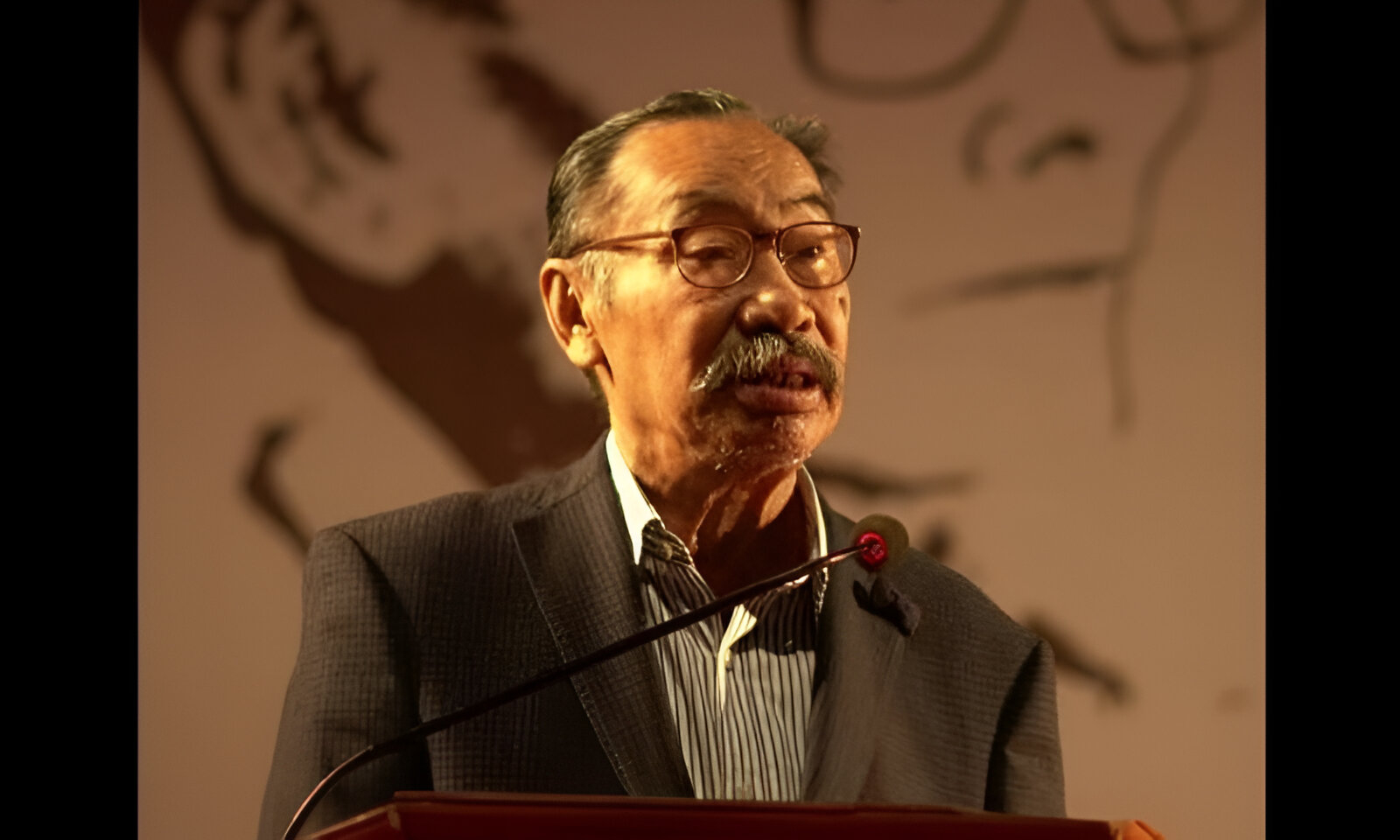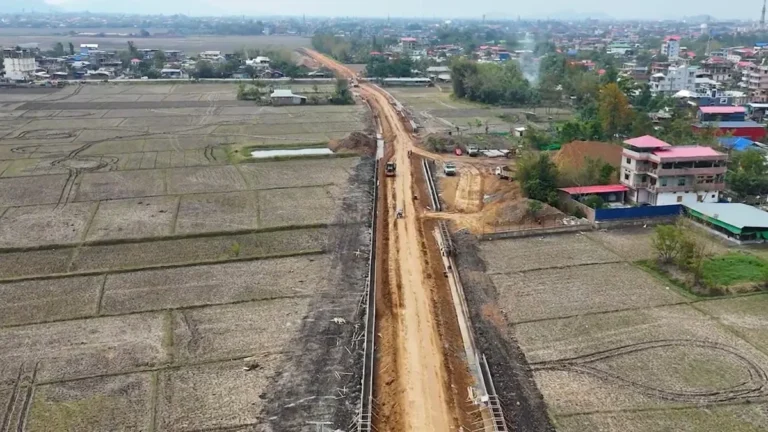“Arambam Lokendra: Lifetime Achievement Laureate at MSFA 2025 – A Cinematic Beacon”
Summary of the News Article
The 17th Manipur State Film Awards (MSFA) 2025 honored the legendary Manipuri cinema scholar and cultural thinker Arambam Lokendra with the prestigious Lifetime Achievement Award. The award recognizes Lokendra’s extensive contributions—as screenwriter, actor, filmmaker, academician, and mentor—to the birth and evolution of Manipuri cinema, starting from his work on the state’s first feature film Matamgi Manipur, through documentary filmmaking, theatre, and film education. The award carries ₹1 lakh, a citation, a shawl, and a memento
Cinematic Beacon Unveiled: Arambam Lokendra’s Lifetime Legacy Lights Up Manipur
Introduction
Imagine a pioneer whose vision shaped an entire cinematic culture—that’s Arambam Lokendra for Manipuri cinema. Recently, the 86-year-old legend received the top honor—a Lifetime Achievement Award at MSFA 2025. But his story isn’t just about accolades; it’s about forging a film industry from scratch, mentoring generations, and cementing an identity for Manipuri storytellers. Join me as we explore the man behind the recognition and what his journey tells us about culture, craft, and the future.
1. The Man, The Myth, The Maestro
Born in 1939, Arambam Lokendra is no ordinary creative figure. He’s been a screenwriter, actor, filmmaker, theatre torchbearer, academic visionary, and mentor. His craft spans early feature films (Matamgi Manipur), powerful documentaries (Pebet), theatre activism, and research on ritual traditions—all bridging art and cultural preservation
2. MSFA 2025: A Fitting Salute
The 17th Manipur State Film Awards recognized Lokendra’s lifelong love affair with cinema. The Lifetime Achievement Award, chosen by a committee chaired by M Joy Singh (Art & Culture Commissioner), included ₹1 lakh, a citation, a shawl, and a memento—symbols of his indelible impact
3. From Tirtha Jatra to Matamgi Manipur
Lokendra played a pivotal role in adapting his own play Tirtha Jatra into Matamgi Manipur (1972)—Manipur’s first feature film. He translated stage nuances into cinematic language when the craft was yet uncodified in the state It’s like designing a car when roads didn’t exist yet—and he did it.
4. Theatre Activism: Voice of the People
Under the banners of Aryan Theatre and Forum for Laboratory Theatres, Lokendra tackled political violence, poverty, and ethnic identity—using stagecraft as a protest and expression tool His fearless voice shaped theatre as a mirror for society.
5. Heavier Than Fiction: Pioneering Documentaries
His documentary Pebet (1985) was not just a film; it was Manipuri non-feature cinema’s debut at the Indian Panorama, spotlighting local craft and culture on a national stage. Then came Soldiers in Sarong (2003), a bold exploration of Meira Paibee backed by Ford Foundation .
6. Scholar + Pioneer: Bridging Academia and Cinema
As head of the Audio-Visual Research Centre, Manipur University, Lokendra merged scholarship with cinema. His Ford-sponsored research preserved ritual traditions and supported film academics—ensuring cinema in Manipur isn’t just entertainment, but socio-cultural documentation
7. Mentorship: Crafting Future Filmmakers
Lokendra didn’t just create films—he nurtured a generation. Through workshops, lectures, and mentorship, many of today’s Manipuri filmmakers trace their roots to his tutelage. He planted seeds that blossomed into today’s cinematic voices .
8. Measuring Impact Since 1972
Here’s his impact in snapshots:
- Matamgi Manipur set Manipuri cinema in motion.
- Pebet introduced non-feature films to Indian Panorama.
- Soldiers in Sarong highlighted women’s rights and culture.
- Academic frameworks preserved heritage and fortified film studies.
- Dozens of filmmakers, writers, and actors trained under his guidance.
9. Why Lokendra Matters Today
9.1 Cultural Identity
He anchored Manipuri storytelling in local soil, ensuring cinema reflects ethnic nuances and spiritual ethos.
9.2 Representation Beyond Entertainment
His films are active as art—truth-tellers, recorders, and agents provoking dialogue on identity, conflict, and resilience.
9.3 Educational Foundation
He created critical frameworks for film beyond entertainment—supporting archival work, research, and pedagogy.
Conversational Style & Engagement
Ever met someone whose entire career feels like a living textbook? That’s Lokendra. He didn’t just make films—he built the manual for them. Imagine innovating when there were no guides—no cameras, no funding, no idea where to begin. That’s bravery—and vision.
Analogies & Metaphors
- Like a seed planted before others even noticed soil, Lokendra sowed culture that grew into today’s cinema.
- He’s not just a candle, he’s a lighthouse—guiding filmmakers in uncharted cinematic seas.
- Think of film school in action—but classroom walls are stages, equipment, and community.
Future of Manipuri Cinema Post-Lokendra
His impact is structural:
- Film academia now exists—via Audio-Visual Research Centre and structured film studies.
- Practitioner base is stronger—docu-makers, feature directors, regional directors.
- Greater visibility—international festivals, research documents, theatrical forums.
Challenges and Path Ahead
- Archival urgency: Locally produced films, originals, documents need preservation.
- Contemporary funding: Independent film still needs support mechanisms.
- Access to tech: Rural film workshops, editing suites, equipment access.
- Continuity of mentorship: Institutions must carry Lokendra’s torch forward.
Conclusion: Honoring & Continuing the Legacy
Arambam Lokendra’s Lifetime Achievement Award isn’t an endpoint—it’s an incitement. His is a story of forging cinema from scratch, of teaching the next generation to fly. As Manipuri filmmakers step forward, his spirit echoes in every frame, every narrative, every lens that dares to see the world from Imphal.
FAQs
1. What is Arambam Lokendra known for?
He’s a lifelong contributor to Manipuri cinema—screenwriter, actor, filmmaker, academician, mentor, and cultural thinker honored with the MSFA Lifetime Achievement Award 2025
2. What role did he play in Matamgi Manipur?
Lokendra adapted his own play Tirtha Jatra into the script, helped create the screenplay, and acted—when cinema-making was completely unheard of locally
3. What are some of his other contributions?
He produced Pebet, which showcased Manipuri non-feature films at Indian Panorama, and Soldiers in Sarong, a Ford-backed documentary on Meira Paibee, besides academic research at Manipur University
4. How has Lokendra influenced future filmmakers?
Through workshops, lectures, and mentoring scholarships, many current Manipuri filmmakers attribute their skills and passion to his teaching
5. What challenges lie ahead for Manipuri cinema?
Key needs include film archive preservation, structured funding, tech access, and institutionalizing mentorship so Lokendra’s vision continues beyond him.




